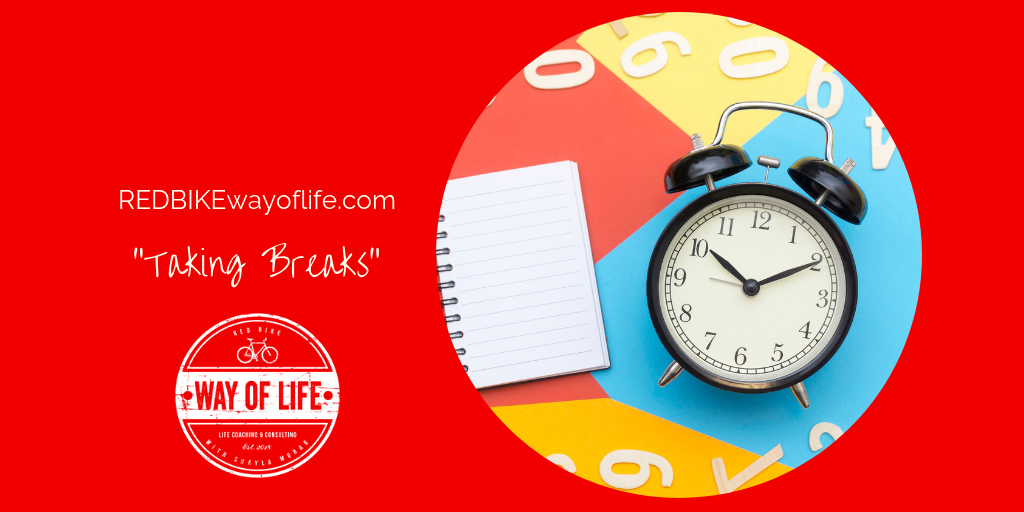The Western world views breaks as a tool to promote laziness. But your effectiveness and efficiency will improve if you take regular breaks. You can work more intently and for more hours each day if you’ll give yourself a break at least once per hour. You won’t just get more done, you’ll be happier and less stressed, too.
Learn about the following 7 advantages of taking breaks:
1. You’ll get more done. Try a little experiment at work. First, spend a day attempting to do nothing but work for the entire day and note how much you accomplish. The following day, focus on your work for 30 minutes and then take a 5-minute break. Notice how much more you accomplish.
This applies to physical activities as well. Studies have shown the average marathon runners actually complete the race faster and more comfortably if they take regular walking breaks of up to a mile each.
2. You’ll feel much better at the end of the day. While performing the previous experiment, notice how you feel physically and mentally at the end of the day. You’ll feel nearly as good at the end of the day as you did at the beginning if you take breaks. Without breaks, you’ll feel exhausted.
3. The quality of your work is improved. The ability to focus is limited. Your mind begins to wander at some point. The quality of your work is compromised when your focus begins to wane.
Taking regular breaks is an effective way to ensure the quality of your work doesn’t suffer.
4. Breaks provide opportunities for evaluation. It’s important to regularly assess if you’re working effectively. If you put your head down and never look up, you can find yourself lost in the weeds. A break is an opportunity to re-evaluate the situation.
5. Taking a break can lower your stress. It’s important to intermittently disengage from any activity that causes stress. Your ability to work is compromised as your stress rises beyond a certain level
6. Breaks help to prevent boredom. Studies suggest that it’s more effective to regularly disengage and reengage with goals rather than focusing on them for long periods of time. The same idea applies to your work. Avoid spending too much time on one task before taking a break. You’ll maintain a higher level of interest in your work.
7. You can use your breaks to get other things done. Imagine how much you can accomplish with 8 or more 10-minute breaks each day. You could spend those 10 minutes performing an exercise or two, meditating, staying in contact with friends and family, tidying up, paying bills, or practicing the violin.
A break is a change in activity. Breaks don’t have to be spent daydreaming, though that’s not a bad way to spend a break.
You might be wondering how long a break should be and how frequently they should be taken. Science has an answer. For most people, the ideal break schedule is a 5-minute break every 30 minutes or a 10-minute break every 60 minutes. It can also be helpful to take a longer break every 2-3 hours.
Try a few different schedules and see what works for you. As a general rule, tasks that require more brainpower or muscle power require more frequent breaks.
Breaks are enjoyable way to add hours to your day. Your output will increase and you’ll also enjoy your free time more since you won’t be exhausted. Give yourself a break today and enjoy the many benefits taking regular breaks provides.


